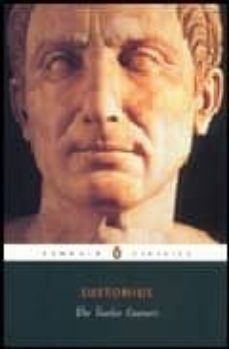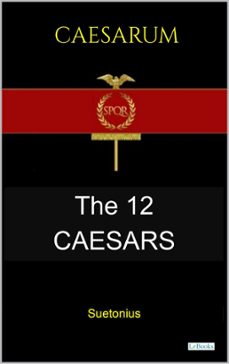Imprescindibles
Ficción
No Ficción
Ciencias y tecnología Biología Ciencias Ciencias naturales Divulgación científica Informática Ingeniería Matemáticas Medicina Salud y dietas Filología Biblioteconomía Estudios filológicos Estudios lingüísticos Estudios literarios Historia y crítica de la Literatura
Humanidades Autoayuda y espiritualidad Ciencias humanas Derecho Economía y Empresa Psicología y Pedagogía Filosofía Sociología Historia Arqueología Biografías Historia de España Historia Universal Historia por países
Infantil
Juvenil
#Jóvenes lectores Narrativa juvenil Clásicos adaptados Libros Wattpad Libros Booktok Libros de influencers Libros de Youtubers Libros Spicy Juveniles Libros LGTBIQ+ Temas sociales Libros ciencia ficción Libros de acción y aventura Cómic y manga juvenil Cómic juvenil Manga Shonen Manga Shojo Autores destacados Jennifer L. Armentrout Eloy Moreno Nerea Llanes Hannah Nicole Maehrer
Libros de fantasía Cozy Fantasy Dark academia Hadas y Fae Romantasy Royal Fantasy Urban Fantasy Vampiros y hombres lobo Otros Misterio y terror Cozy mistery Policiaca Spooky Terror Thriller y suspense Otros
Libros románticos y de amor Dark Romance Clean Romance Cowboy Romance Mafia y amor Romance dramatico Romcom libros Sport Romance Otros Clichés Enemies to Lovers Friends to Lovers Hermanastros Slow Burn Fake Dating Triángulo amoroso
Cómic y manga
Novela gráfica Novela gráfica americana Novela gráfica europea Novela gráfica de otros países Personajes, series y sagas Series y sagas Star Wars Superhéroes Cómics DC Cómics Marvel Cómics otros superhéroes Cómics Valiant
eBooks
Literatura Contemporánea Narrativa fantástica Novela de ciencia ficción Novela de terror Novela histórica Novela negra Novela romántica y erótica Juvenil Más de 13 años Más de 15 años Infantil eBooks infantiles
Humanidades Autoayuda y espiritualidad Ciencias humanas Economía y Empresa Psicología y Pedagogía Filosofía Historia Historia de España Historia Universal Arte Cine Música Historia del arte
Ciencia y tecnología Ciencias naturales Divulgación científica Medicina Salud y dietas Filología Estudios lingüísticos Estudios literarios Historia y crítica de la Literatura Estilo de vida Cocina Guías de viaje Ocio y deportes
SUETONIUS
Recibe novedades de SUETONIUS directamente en tu email
Filtros
Del 1 al 7 de 7
DK 9780241261675
''Twenty-three dagger thrusts went home as he stood there. Caesar did not utter a sound...''.This vivid, racy account of the men who wielded absolute power over ancient Rome - including maniacs, tyrants, warriors, sadists and murderers - is the source for nearly everything we know about one of the most dramatic periods in history.Ten new titles in the colourful, small-format, portable new Pocket Penguins series.
Ver más
Tapa blanda
PENGUIN 9780140449211
The Twelve Ceasars of Suetonius, covering the Roman rulers from Julius Caesar to Domitian, remains one of the richest and most fascinating of all Latin histories. Suetonius gathered much of his information from eyewitnesses, checking his facts carefully and quoting conflicting evidence without bias. But his history is also the most vivid and raciest account we have of scandalous and amusing incidents in the domestic lives of the first Ceasars.
Ver más
Tapa blanda
Lebooks Editora 9786558943570
Written by the great Roman historian Suetonius in the year 121, "The Twelve Caesars" is an extremely important historical document and one of the main sources of knowledge about Roman history. In this magnificent work, which covers the period from the rise to the fall of the Roman Empire, we get to know the intimacy of the life of each of the twelve Caesars: their ancestors, their military campaigns, the events that led them to power and death, as well as the character and personality of each of them. Beyond historical facts, Suetonius managed to portray the human character of the 12 Caesars in an environment characterized by unlimited power, violence, and the debauchery and luxury of the emperors in ancient Rome. It is an exceptional work that deserves to be read.
Ver más
eBook
DigiCat 8596547764632
In The Twelve Caesars, Suetonius, a Roman biographer and historian, meticulously chronicles the lives and reigns of the first twelve emperors of Rome, from Julius Caesar to Domitian. Through a unique blend of anecdotal narrative and factual history, Suetonius employs a vivid literary style characterized by rich detail and an engaging tone, revealing not only the political machinations of these rulers but also the personal traits that defined them. The work is framed within the context of the early Roman Empire, providing valuable insights into the socio-political atmosphere of the time and addressing themes such as power, ambition, and human frailty, making it a pivotal source for understanding the complexities of imperial governance and personal character in ancient Rome. Suetonius, born circa 69 AD, was deeply entrenched in the milieu of Roman politics and literature, gaining firsthand experience through his work in the imperial administration and as a contemporary of the emperors he depicts. His access to a wide array of sources, including state documents and rumors circulating in Roman society, enabled him to present a multifaceted portrait of each Caesar. This biography not only reflects Suetoniuss fascination with the powerful but also reveals the societal fascination with celebrity culture, drawing parallels to the intersection of personal life and public duty. Recommended for historians, classicists, and general readers alike, The Twelve Caesars offers a compelling exploration of power and personality that resonates through the ages. Suetoniuss insightful anecdotes and unflinching examination of imperial figures provide a riveting glimpse into the human psyche behind rule, making this work an essential read for anyone seeking to understand the foundations of imperial Rome and its enduring legacy.
Ver más
eBook
e-artnow 4066339581340
This eBook edition of "The Twelve Caesars" has been formatted to the highest digital standards and adjusted for readability on all devices. The Twelve Caesars is a set of twelve biographies of Julius Caesar and the first 11 emperors of the Roman Empire written by Gaius Suetonius Tranquillus. The book provides valuable information on the heritage, personal habits, physical appearance, lives, and political careers of the first Roman emperors as it mentions details which other sources do not. As with many of his contemporaries, Suetonius took omens seriously and carefully includes reports of omens portending Imperial births, accessions, and deaths. The Twelve Caesars was considered very significant in antiquity and remains a primary source on Roman history. The book discusses the significant and critical period of the Principate from the end of the Republic to the reign of Domitian.
Ver más
eBook
Good Press 8596547683162
SuetoniusAo "The 12 Caesars" offers a captivating exploration of the lives and reigns of the first twelve emperors of Rome, from Julius Caesar to Domitian. Written in a succinct and engaging prose style, Suetonius employs a biographical approach that interweaves anecdotes, political intrigue, and personal vices, illuminating the complexity of power dynamics in ancient Rome. His narrative is marked by an undeniable wit, reflecting the literary context of the early second century AD, where historical narrative sought to entertain as well as inform. The work serves not only as a political history but also as a keen psychological study of its subjects, revealing the interplay between personal character and imperial power. Suetonius, an accomplished Roman biographer and historian, lived during a time when the Roman Empire was transitioning into its imperial phase. His proximity to the imperial court and his role under Emperor Hadrian likely provided him with unique insights into the lives of these rulers. SuetoniusAo extensive research, combined with his keen observational skills, resulted in a nuanced portrayal of each emperorAos contributions and failings. I highly recommend "The 12 Caesars" to anyone interested in Roman history, political biography, or the intricacies of human nature under power. It offers not only invaluable historical insights but also serves as a timeless reminder of the fragility of authority and the complexities of leadership.
Ver más
eBook
Del 1 al 7 de 7






























